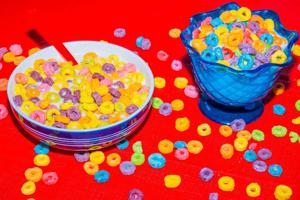Froot Loops will keep their artificially brightened colors. Some Pop-Tarts will lose them. Welcome to the ongoing experiment that is the American breakfast.
The two companies formed after Kellogg Co. split last year are now facing new regulations on the use of artificial food dyes, leaving them to chart their own courses in a controversial area for highly processed foods, especially those designed for kids Snack company Kellanova, which makes Pop-Tarts and Rice Krispies Treats, is working to replace artificial additives in some of its products with natural alternatives after the dye in them was banned by one state. But breakfast-cereal maker WK Kellogg Co.

is keeping its dyes because they haven’t yet run afoul of new legal restrictions, even though the company found a way to do without these colorings for essentially the same products sold in Canada. Kellanova’s actions may be a harbinger of what’s to come as food companies navigate legislation on the use of the dyes. Last year, California banned certain chemicals used in foods and candy as of 2027, after saying they caused health problems.
Among those was food coloring Red No. 3, which is already prohibited from most uses in Europe. This year, a proposed bill in the state would ban seven more dyes, including Red No.
40, Yellow No. 5 and Blue Nos. 1 and 2, from its public schools because they have been linked to cancer, neurobehavioral issues and hyperactivity.
Other states are now considering bans of their own. Now Kel.
















